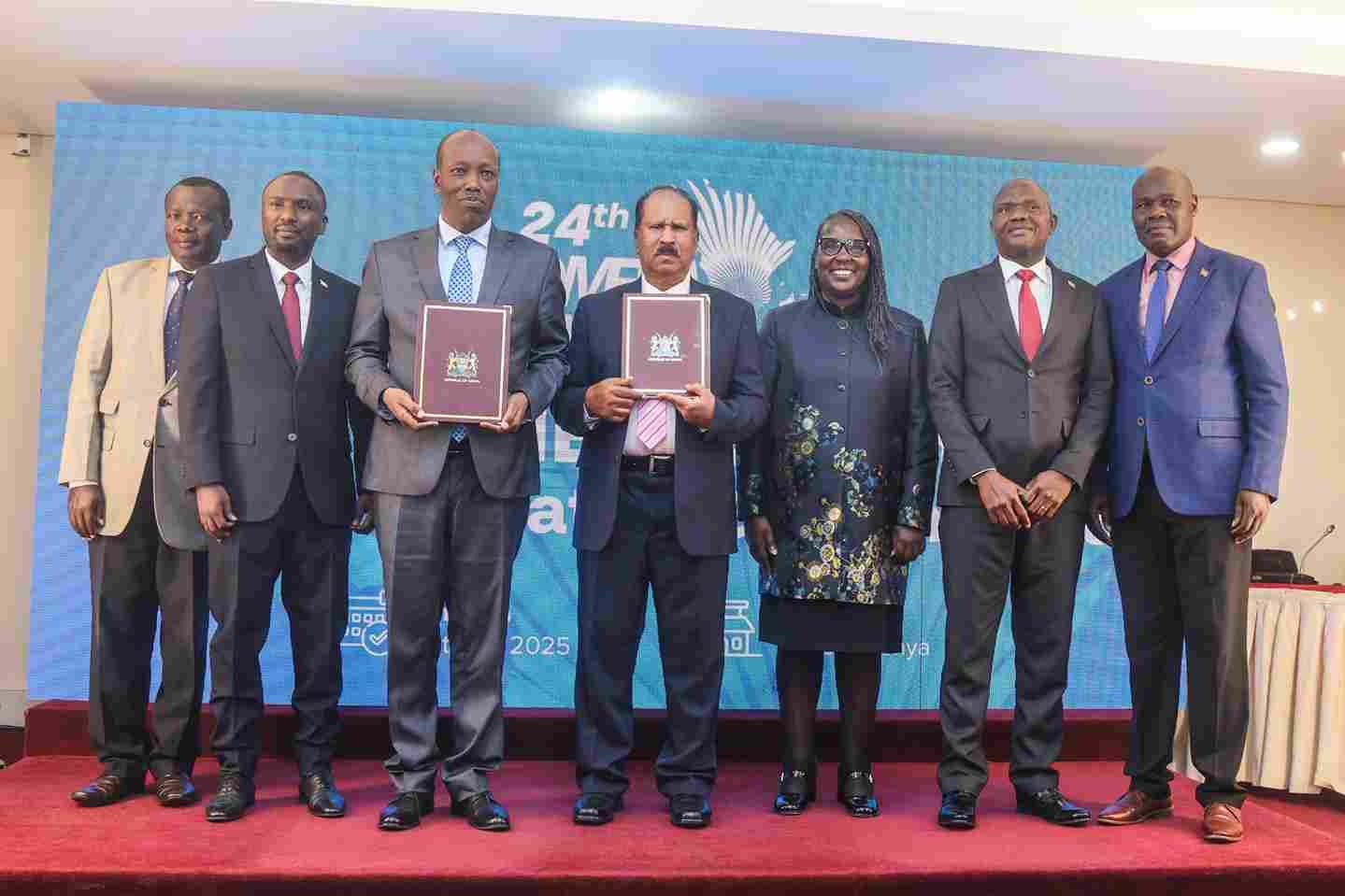We're loading the full news article for you. This includes the article content, images, author information, and related articles.
Nairobi is set to host leaders from 21 member states for the 24th Common Market for Eastern and Southern Africa (COMESA) Summit, with Kenya poised to assume the chairmanship.

Nairobi, Kenya – The Kenyatta International Convention Centre (KICC) is the focal point this Thursday, October 9, 2025, as Kenya hosts the 24th Common Market for Eastern and Southern Africa (COMESA) Summit of Heads of State and Government. The high-level gathering, themed “Digital Transformation for Inclusive and Sustainable Growth,” coincides with COMESA's 30th anniversary, highlighting a renewed focus on digital trade, industrialisation, and youth-driven innovation across the 21-member bloc.
President William Ruto is expected to assume the chairmanship of the COMESA Authority for a one-year term, taking over from Burundi's President Evariste Ndayishimiye. This leadership transition positions Kenya to champion intra-Africa trade and advance the bloc's agenda amidst global economic shifts.
COMESA, established in December 1994, succeeded the Preferential Trade Area (PTA) that had been in existence since 1981. Over three decades, the organisation has aimed to foster economic integration, trade, and cooperation across Eastern and Southern Africa. The current summit's theme underscores a strategic pivot towards digital solutions to enhance regional value chains and achieve sustainable, inclusive growth.
The summit is preceded by a series of crucial meetings, including the COMESA-EU Horticulture Connect on Monday, October 6, and the 18th COMESA Business Forum and Exhibition on Tuesday, October 7. The 20th Meeting of Ministers of Foreign Affairs, held on Wednesday, October 8, addressed peace and security in the region.
A key focus of the summit will be the adoption of practical reforms to facilitate digital trade. These include a timetable for deploying electronic Certificates of Origin, frameworks for interoperable payments, and commitments to smart border procedures that combine trade facilitation with anti-corruption safeguards. These measures are critical for streamlining cross-border transactions and reducing trade barriers within the COMESA Free Trade Area, which currently comprises 16 member states.
Kenya's Ministry of Investments, Trade and Industry Cabinet Secretary, Lee Kinyanjui, has emphasised the importance of the summit in providing a platform for engagement during a period of global economic turbulence. He highlighted the need for regional mechanisms and technology to bridge markets, especially with external trade regimes under strain.
The COMESA Business Forum, a precursor to the main summit, brings together over 300 businesspeople, policymakers, innovators, and investors from across the region. This forum serves as a vital platform for networking, exploring ways to deepen trade, and forming partnerships. The COMESA Business Council (CBC) is actively involved in promoting digital transformation through initiatives like supply chain logistics optimisation, AI, space technologies, and the digitalisation of trade facilitation tools.
Kenya's commitment to digital transformation is evident in its efforts to expand digital and physical infrastructure, enabling citizens to benefit from government services and participate in structured trading. The Safe Digital Boost for Africa (SDBA) Programme, funded by the European Union, is a significant initiative aimed at revolutionising trade, digitalisation, and cybersecurity across Africa, with Kenya being one of the pilot countries for the COMESA Digital Retail Payment Platform.
Intra-COMESA trade has shown steady growth, reaching an estimated $14 billion, while the combined Gross Domestic Product (GDP) of member states surged from $90 billion in 1994 to $1.13 trillion in 2024, accounting for a third of Africa's GDP. Despite this growth, intra-regional trade within COMESA remains modest, with only about 9.4 percent of COMESA's exports destined for internal markets in 2023. This contrasts with the broader intra-African trade, which reached approximately USD 192 billion in 2023, representing about 15 percent of Africa's total trade.
The disparity in intra-regional trade highlights Africa's challenge in achieving deeper regional integration and global competitiveness. The summit aims to address obstacles to trade within the region and tackle emerging international issues affecting the continent. The success of digital transformation initiatives will depend on harmonising legal and technical standards, enhancing digital infrastructure, and ensuring the widespread adoption of e-payment systems.
While the theme of digital transformation is clear, specific details regarding the implementation timelines, associated costs, and safeguards for new digital trade policies are anticipated to be clarified during the summit. Analysts are keen to understand how these developments will influence near-term public debate and policy execution. The full operationalisation of the African Continental Free Trade Area (AfCFTA), which promises a 1.3 billion population market, also remains a critical factor in the broader regional trade landscape.
Observers will be closely watching for concrete commitments on the implementation of digital trade tools, particularly the rollout of electronic Certificates of Origin and interoperable payment frameworks. The discussions on peace and security, especially in light of regional instabilities, will also be a key area of interest. Kenya's agenda under President Ruto's chairmanship, focusing on enhancing trade, safeguarding industries, and expanding markets, will shape the bloc's direction in the coming year.
Keep the conversation in one place—threads here stay linked to the story and in the forums.
Sign in to start a discussion
Start a conversation about this story and keep it linked here.
Other hot threads
E-sports and Gaming Community in Kenya
Active 9 months ago
The Role of Technology in Modern Agriculture (AgriTech)
Active 9 months ago
Popular Recreational Activities Across Counties
Active 9 months ago
Investing in Youth Sports Development Programs
Active 9 months ago
Key figures and persons of interest featured in this article